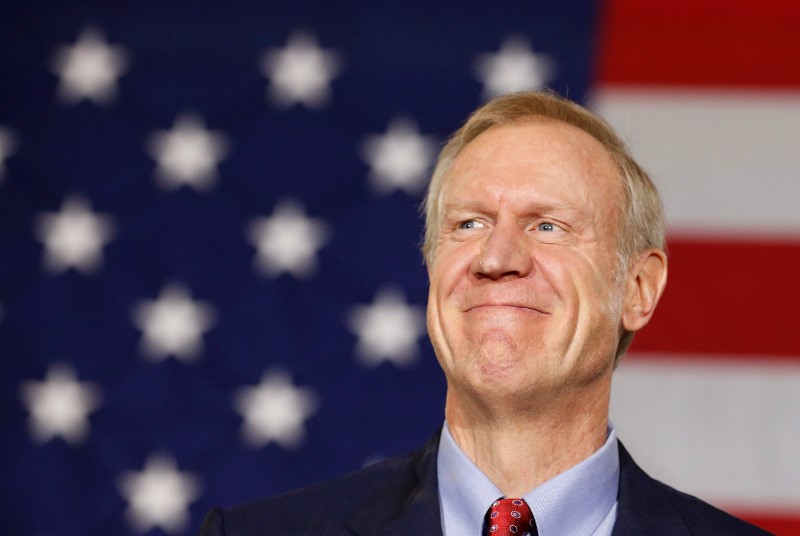Who is Kevin Hassett? Wolfe looks at the Trump ally tipped to become Fed Chair.
CHICAGO (Reuters) - The Illinois House on Wednesday passed a bill to send $3.11 billion to local governments, lottery winners, bondholders and others while the state continues to operate without an approved spending plan.
The 107-1 vote sends the measure to the Senate, which plans to return to session on Monday.
An impasse between Republican Governor Bruce Rauner and Democrats who control the legislature has left the fifth-largest U.S. state without a budget six months into fiscal 2016. Various court orders and ongoing appropriations have kept money flowing to state workers and for some services, pensions and most bond payments.
House Majority Leader Barbara Flynn Currie said while the state is spending at a rate exceeding available revenue, items in the bill need to be funded.
"I would say a piecemeal approach is better than no approach at all," she said.
Following the House vote on the bill, Rauner told reporters the measure represents a compromise to ensure that local governments get money to keep 911 services operating and for the state to buy road salt for the winter.
"My number one concern is public safety," the governor said.
The House approved a smaller funding measure last month but a parliamentary maneuver was used to block the legislation from moving to the state Senate. The latest bill now includes funding for items sought by the governor, including debt service on about $41 million of insured state civic center bonds that have a $13.1 million payment due on Dec. 15.
The state has been hit with lawsuits by unpaid local governments and lottery winners. On Wednesday, a federal court order said Illinois will put aside money to cover winning lottery tickets between July 1 and Jan. 15 plus interest.
The legislation frees up $1 billion for lottery payments, $77 million for 911 centers, $165 million to help poor residents pay for heating and cooling costs, and $31 million for road salt.
Rauner and legislative leaders met together for the first time in months on Tuesday and largely clung to the same ideological talking points that led to the budget impasse.
